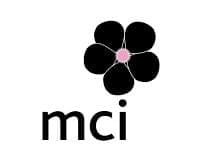At the beginning of the state of alarm, it was estimated that the coronavirus had had a negative impact around 225 million euros and more than 1,100 suspended events in the MICE sector, causing companies to start looking for digital or hybrid alternatives.
” Creating virtual events is not about embodying the same processes as in the face-to-face event, but rather requires a very well-defined strategy .”, Highlights Rudolf Rannegger Deputy General Director of MCI Spain & Portugal

August 2020 – Despite the events business, worldwide, moving more than 1,500 million participants in 180 countries, generating 10.3 million jobs and contributing 548 billion euros to world GDP – According to a report by the Events Industry Council and Oxford Economics -, since the beginning of this year the coronavirus has marked a before and after in the MICE sector, causing the cancellation of thousands of congresses, conferences and events around the world. According to the MICE Forum, In Spain, at the beginning of the state of alarm, around 1,100 events were suspended and losses of 225 million euros were estimated . This situation made companies start looking for alternatives, betting on digital or hybrid events.
However, according to an internal MCI survey, in this process of change towards the virtual or hybrid event, many companies have made the same mistakes that mainly caused the disengagement of the attention of the participants and hence the failure of the digital event. The most common errors they found are: ignorance of digital formats, long sessions with difficult to digest content, lack of personalization, no participation of attendees and a really valuable and relevant attribute in the event.
These errors can be grouped into two general ones that are committed at the beginning of the project. First, organizations tend to choose technology first before reviewing their strategies and goals. However, according to MCI, there are as many platforms as there are types of events and not necessarily a single solution is valid for the entire portfolio of events.
Second, companies have copied and pasted their agendas from the face-to-face event to the virtual one, without making the necessary adaptations to meet the event’s objectives in their new environment.
In this context, Rudolf Rannegger, Deputy General Director of MCI Spain & Portugal highlights that “ to carry out a transition from a face-to-face event to a virtual one, a strategy and a design thinking approach (Desing Thinking) is necessary. Redefining the objectives, thinking about the audience and implementing elements of neuroscience are key and will help companies to achieve the impact they want in the virtual event. “
Evolution towards new types of events
Taking into account the importance and weight of events in today’s world, MCI Spain Event Services , leading organizer of events, conferences and congresses worldwide, works with a methodology that guarantees success in each of the hybrid and digital event creation processes. ” The key is to follow a methodology from the beginning, redesign the experience and integrate innovation and creativity into the process, ” adds Rannegger.
In order to apply this methodology, it is essential to work hand in hand with clients, understand the participants, delve into the event’s objectives and agenda in detail, understand the content of each element of the day, and finally, redesign the experience.
Within the framework of this redesign, it is especially important to bear in mind that in the digital world the attention span is notably reduced. Consequently, it is necessary to guarantee the relevance of the content, contribute elements of creativity and design the rhythm of the event to avoid that attendees disconnect after 15 – 20 minutes. Likewise, the design of a virtual event is especially strategic, since it can greatly multiply the potential audience, in addition to achieving the same objectives as a face-to-face and a happy and loyal participant.
Virtual and hybrid events can enable a more holistic and effective approach, a broader reach, and new ways of engaging with your audience. But none of this will work if the “why” behind the event strategy are not clearly defined.
If the processes behind your event no longer fit into this new normal, it’s time to find a suitable methodology and tools to help you design and deliver an experience that feels true and authentic to attendees.
About MCI
MCI is the world’s leading event, conference and congress organizer. It has been bringing people together for more than 30 years through innovative proposals through of face-to-face, hybrid and digital experiences. The company helps companies and associations to strategically get involved and activate their target audiences, creating online communities and offline they need to strengthen their brands and increase their performance.
MCI is a Independent company based in Geneva (Switzerland) that has 60 offices in 31 countries and a staff of more than 2,500 professionals who work for clients in Europe, America, Asia-Pacific, India, the Middle East and Africa to offer their services and projects to clients all over the world.

